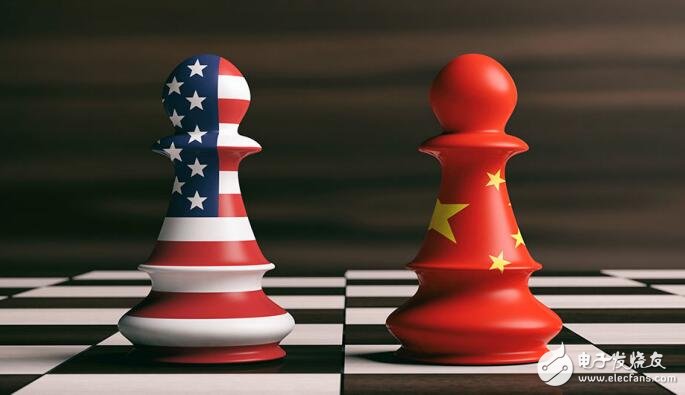Recently, the trade friction between China and the United States has always been the focus of attention in various industries. Today we take a look at how foreign counterparts view the impact of Trump's tariff policy on the security industry.
US President Trump recently proposed a series of tariffs that could disrupt global trade and affect the global physical security market. Trump first proposed a tariff proposal for imports of aluminum and steel, which imposes a 25% tariff on steel entering the United States and a 10% tariff on aluminum products.

Due to the sharp increase in the import prices of raw materials for steel and aluminum products, it will inevitably lead to an increase in the manufacturing costs of a large number of US goods, including some high-tech products. This tariff policy is widely interpreted as targeting China. Indeed, with the release of the tariff policy, the United States quickly issued a notice, exempting countries and regions such as Canada, Mexico, the European Union, Argentina, Australia, Brazil and South Korea.
The second wave of tariffs announced a few days later is more targeted at Chinese companies, specifically designed to offset Trump’s alleged unfair practices related to intellectual property in high-tech industries. The $50 billion tariff and other penalties are a response to Chinese theft technology and trade secrets.
The above measures are based on a rarely used provision of the Trade Expansion Act of 1962 ("When a threat or damage to national security is caused under certain circumstances"), allowing the President to impose tariffs on items imported into the United States.
Trump publicly expressed opposition to China's trade practices, such as requiring companies to share trade secrets or forcing companies to license technology at sub-market prices to enter the Chinese market. At the same time, it also claimed that China used state funds to acquire US high-tech companies, and was accused of China also invading stealing technology through the Internet.
Ubiquitous changeThe first wave of China's tariff target goods list, up to 100 categories, including "from shoes to clothing to electronic products." Electronic products are not unexpected. After all, mobile phones and electronic products including computers are the two main categories of goods exported from China to the United States.

At the same time, restrictions on certain types of Chinese investment are mainly directed at China's industrial policies in industries such as artificial intelligence and mobile technology that may lead the United States. In addition, the tariff measures imposed on China's trade are also Trump's commitments in fulfilling the election campaign.
What is the impact on the security industry?So, what impact do these tariff policies have on the security industry? Tariffs, especially those involving Chinese goods, have new variables in the physical security market, especially surveillance cameras and other video products. In the past few years, Chinese companies have had higher and higher market pricing power and occupied most of the market.
Western companies have been struggling to compete with relatively low-priced Chinese products due to lower costs and economies of scale for large manufacturers. Chinese companies have also invested heavily in product development and R&D to expand the functionality of their products at a lower cost, while also helping to drive overall innovation in competitors and the global security market.
Benefit vs limitWill implementing tariff measures reverse this trend? All additional commodity costs due to tariffs will be passed on to consumers; the high-tech components on the tariff list also include “lenses used in CCTV camerasâ€. Can the high price brought by tariffs help narrow the price gap between Chinese video surveillance products and Western video surveillance products?
Tariffs will slow the growth of Chinese companies in the US market, thus providing Western companies with a more active competitive opportunity? Does the uncertainty caused by tariffs cause security distributors or end users to stop using Chinese products?
Or, as some economists have warned, tariffs can have a negative impact on manufacturing and the economy as a whole, slowing economic growth and hampering the industry's recent boom. Will this obvious protectionist approach be counterproductive?
President Trump sent a tweet saying: "The trade war is very good and it is easy to win." But let us also consider the negative impact on the economy and related industries.
Ac Magnetic Contactor,Ac Electrical Contactor,Ac Series Contactor,Ac Contactor For Switching Capacitor
NanJing QUANNING electric Co.,Ltd , https://www.quanningtrading.com